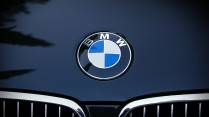Volvo Moves Electric Car Production to Belgium from China
By Dabbie Davis
Jun 10, 2024 01:03 AM EDT

Volvo Car has initiated the process of transferring the production of its Chinese-manufactured electric vehicles (EVs) to Belgium, reported by The Times. This strategic move comes in anticipation of potential tariffs being imposed by the European Union on EVs made in China.
Volvo Electric Production Shifts to Belgium
In light of potential tariffs on Chinese-built EVs, Volvo, primarily owned by Geely of China, contemplates a pause in the sales of these vehicles destined for Europe. As detailed in Business Times, an undisclosed sources cited in the report, Volvo is contemplating not only the shift of production for the EX30 and EX90 models to Belgium.
The Times noted that as a subsidiary of Zhejiang Geely Holding Group, Volvo is perceived as particularly vulnerable among western car manufacturers to the looming threat of tariffs.
Furthermore, the report suggested that the European Union is anticipated to make a decision this week regarding the imposition of provisional tariffs on EV manufacturers in China. If implemented from July 4, these tariffs could potentially increase import duties beyond the existing 10 percent threshold.
Volvo Car denied the allegation published in The Times, saying it is too soon to make any assumptions about the consequences or possible actions that might arise from the ongoing probe.
A spokesperson emphasized the decision to produce the EX30 in Ghent aligns with Volvo's strategy to manufacture vehicles close to their market.
In response to the EU's actions, China criticized the bloc for allegedly aiming to stifle Chinese enterprises and asserted its intention to protect its interests.
More About this Development
Reported by Daily Wrap, Bloomberg's findings reveal Volvo's decision to relocate the manufacturing of electric vehicles from China to Belgium. This strategic transfer is directly linked to the European Commission's proposed escalation of tariffs on Chinese electric cars, presently set at 10 percent.
It is anticipated that clarification on this matter will arrive in the upcoming week. Volvo, with an 80 percent ownership by the Chinese conglomerate Geely, stands out among Western automakers as particularly susceptible to potential tariff increases. The European Commission is set to implement these heightened tariffs starting on July 4.
READ MORE: Nissan Motivates Bolt EV Drivers Towards LEAF by Paying Owners with $1,000
Daily Wrap also highlighted details given by energetyka24.com, the European Commission's decision is a result of an anti-dumping inquiry initiated back in 2023. This investigation delves into potential clandestine forms of state backing for Chinese manufacturing, which artificially deflate the prices of Chinese electric vehicles.
The goal of anti-dumping laws is to stop the practice of selling imported goods at prices much lower than those in the local market of the nation of origin.
There are talks of moving the production of several Volvo models that are headed for the UK to Belgium, according to a Reuters story that quoted The Times. Volvo has not yet provided a response to Reuters' inquiry outside of standard business hours.
The European Commission, responsible for trade policies across the 27-nation European Union, initiated an investigation last year into whether fully electric vehicles manufactured in China were benefitting from unfair subsidies, prompting consideration for additional tariffs.
The anti-subsidy inquiry, officially commenced on October 4, has a duration of up to 13 months, with the Commission empowered to levy provisional anti-subsidy duties nine months following the probe's commencement.
It also noted that tensions between China and the EU have escalated due to various factors, including Beijing's strengthened alliance with Moscow post-Russia's invasion of Ukraine. In response, the EU aims to decrease its dependence on China, especially for resources and goods crucial for its sustainable transition towards greener practices.
RELATED ARTICLE: Volvo Pioneers Issuing World's First EV Battery Passports Ahead of EU Regulations
Copyright @ MOTORTIMES, All rights reserved. Do not reproduce without permission.








